
The last time Massachusetts men’s basketball guard Derrick Gordon played in an NCAA game, he was on the nation’s biggest stage.
As a freshman at Western Kentucky in 2012, Gordon led the Hilltoppers to the second round of the NCAA Tournament, where they saw their season come to an end at the hands of eventual national champion Kentucky. It was an abrupt end for Gordon and Western Kentucky, but a memory he’ll always appreciate.
“It was fun and I’m planning on getting back there too,” Gordon said. “It was crazy. It’s not like the regular season at all. Just the bright lights and the crowd and everything and just as much as I used to watch it on TV, it was just mind-blowing.”
What ensued for Gordon following the season-ending defeat was something that no athlete can ever plan for.
Moving on
Following the second round exit, Gordon had a big decision to make.
In the middle of the season, Hilltoppers coach Ken McDonald was fired less than 24 hours following a loss that put the team at 5-11. Immediately, Gordon, who was recruited by McDonald to leave his New Jersey roots and go down south, started thinking about his future with the program.
“The assistant coach (Ray Harper) took over. I still wasn’t really sure what I was going to do,” Gordon said. “Honestly, I was just more concerned of the season and just worrying about getting my teammates as far as we could, but that definitely played a big role because he left and I liked him a lot.”
As his freshman season moved forward, Gordon had to deal with the thoughts of transferring lingering in the back of his mind, as well as playing basketball. He helped get the Hilltoppers back on track and led them in points (11.8), rebounds (6.7), free throws made (135), free throws attempted (196) and minutes played per game (33.3).
But, when the season ended and the time came for Gordon to make a decision on his future, he knew that the best move for his future was to leave Western Kentucky.
“It was tough, just a tough decision cause at the end of the day, I didn’t really know what to do,” he said. “I sat down and talked to my family about it and just tried to see what the best decision for me to do. Of course I wanted to play in a better conference and get more exposure and things like that.
“I hurt a few of my teammates because they wanted me to stay, but at the end of the day, I had to make this decision for the better of my future.”
After a strong freshman season and helping WKU win a game in the NCAA Tournament, Gordon’s decision to transfer made him one of college basketball’s hottest commodities during the 2012 offseason.
“We had heard that Derrick Gordon was leaving Western Kentucky after a really good freshman year,” UMass coach Derek Kellogg said. “And so when we got the release, I immediately called him and went down and met with his family. So, it was one of those things where there wasn’t any question if we wanted him or if he could play here and what was going to happen, it was just a matter of him feeling comfortable with the campus and the team and me as the head coach.”
Gordon’s option to transfer was a second chance for many schools, like UMass, to recruit him once again after he originally committed to WKU early on in high school when he was playing for St. Patrick’s High School in New Jersey.
When Gordon signed on with UMass, it was more than just adding a strong player to an already deep roster. It was also a win within the Atlantic 10.
Before making his decision to sign with the Minutemen, Gordon also visited with Rhode Island and St. Joseph’s, both conference rivals of UMass.
“I didn’t have any (emotions) initially because I didn’t know if we’d actually be involved in the recruiting process,” Kellogg said. “But, after we spoke with him and his family, at that point I actually felt excited (be)cause they were definitely interested.”
It was a major step in the right direction for Kellogg and the program, but Gordon’s time to shine in Maroon and White was going to have to wait.
An extended offseason
Due to NCAA transfer rules, any player that leaves a Division I school for another one must sit out a season before they are eligible to play again. That meant Gordon had to wait over 20 months before he could resume his college career.
The life of a college transfer is something of a trying time in their lives. They are required to comply with all NCAA academic requirements, go through all the grueling in-season and offseason workouts, but come game day, they sit on the bench in street clothes, acting more as a cheerleader than a teammate.
“Now that I think about it, it went by quick, but then again, going through it, it felt (like) forever,” Gordon said. “Just going to every game, knowing that you’re not playing and you got to sit on the bench, it just felt like it was going to keep going and going and going and going.”
Kellogg likes his players to feel like they are part of a family, so Gordon had plenty of support during last season. One player who helped get him through his long time off was point guard Chaz Williams.
Williams, now a senior, went through the same experience after his freshman year, when he decided to leave Hofstra and play for the Minutemen. With his own experiences of sitting out a year, Williams took Gordon under his wing and helped him make the transition between schools easier. He’s also taking a lot of the pressure off of Gordon to make plays.
“When I was at Western Kentucky, which was tough, I had to take a lot of shots,” Gordon said. “I had good players around me, but I was one of the main scorers. Now, it’s a lot different. Chaz is a scorer as well. When a lot of people are going to be looking at him a lot more, it’s going to ease me up.”
The teaching and guidance that Gordon received from his teammates last season helped him quickly adjust to life at UMass. He bought into the team concept and it’s shown in his dedication outside of practice and constantly trying to get better.
Something to prove
If you ever want to find Gordon on campus, you’ll likely find him at the practice court. That’s how much basketball means to him. Whether it’s the extra work he puts in after practice, or the late-night workouts at Curry Hicks Cage by himself, Gordon knows he still has something to prove.
“Coming into this year, I got a big chip on my shoulder,” Gordon said. “A lot of people are still doubting me just because of the school that I came from and the conference. I mean, I have a lot to prove, not just to myself, but, I mean, people around the country.”
Gordon finds solace when he’s working out by himself. For a guy who has been on the biggest stage when the lights were brightest, Gordon enjoys just taking a step back from all the commotion surrounding the team and just working on his own game.
“Definitely just coming here late at night and just doing some of the things that I wasn’t doing well in practice,” he said. “Just little things like that, it’s all going to pay off eventually, so, I mean, it gives me more confidence.”
His hard work hasn’t gone unnoticed either. Kellogg appreciates his drive, but sometimes wishes he would take a rest.
“I tell him to get some rest,” Kellogg said, laughing. “I do like that he’s committed to the game. That he’s getting in extra work.”
Despite not playing a game yet for the Minutemen, Gordon is the only member of the team that knows what it’s like to play in the NCAA Tournament. That experience is something that he’ll add to a team that is looking to get back to the Big Dance for the first time in 15 seasons.
“I have the most experience in the NCAA Tournament as far as this team, but if we do what we gotta do and get back there, then I think that we can go a lot further than I did when I was at Western Kentucky,” he said.
Gordon knows what this team is capable of doing and understands that he’ll play a major role in getting the program back where it’s longed to be. He describes himself as a “winner” and gives off an air of confidence that has become contagious among the other members of the team.
It’s been nearly two years since Gordon last played in a game. But, with the season opener against Boston College only days away, the excitement in Gordon’s personality continues to grow, knowing that he is finally back where he belongs.
Patrick Strohecker can be reached at [email protected] and followed on Twitter @MDC_Strohecker.

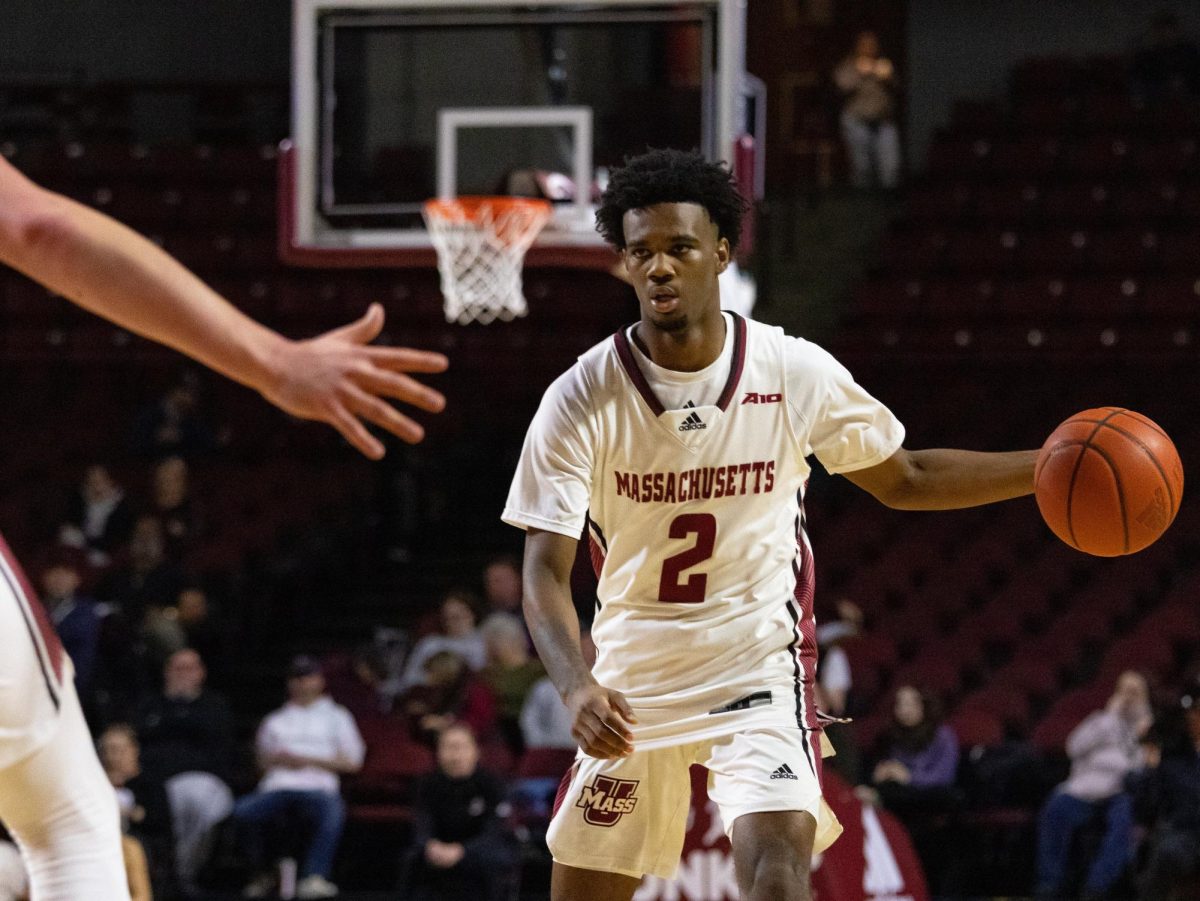
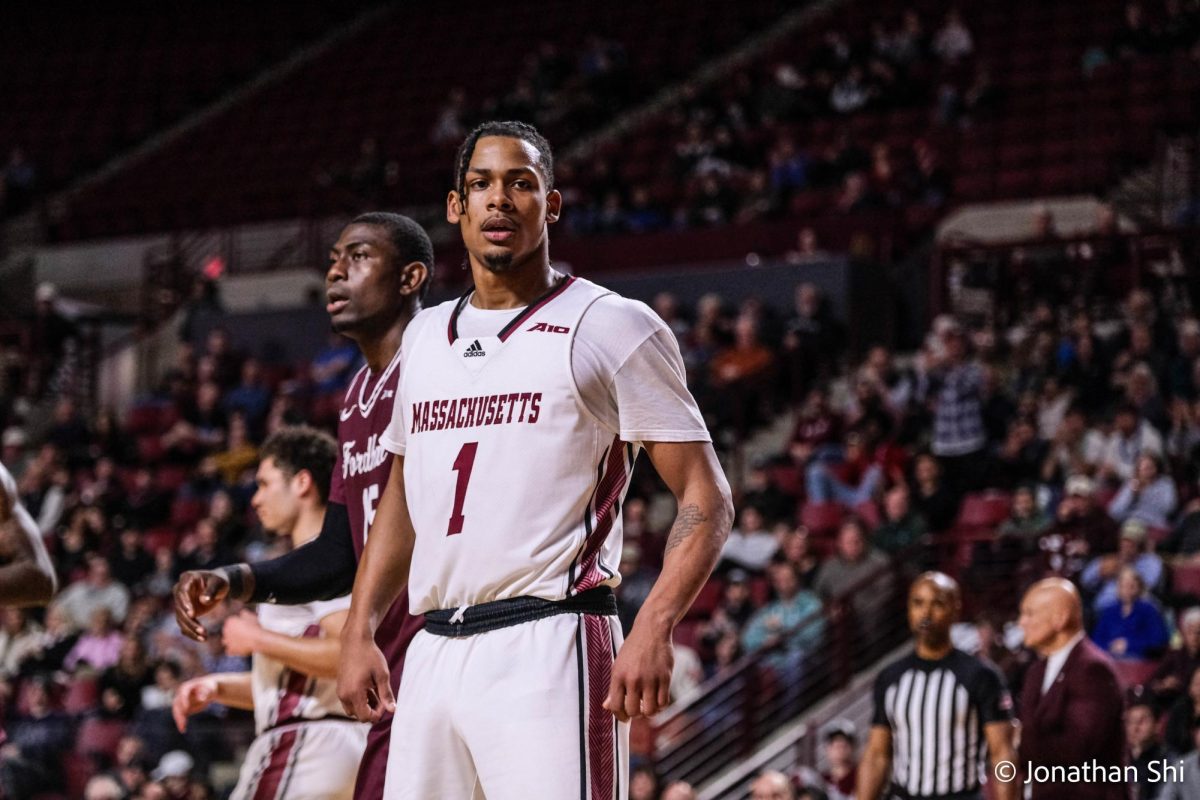
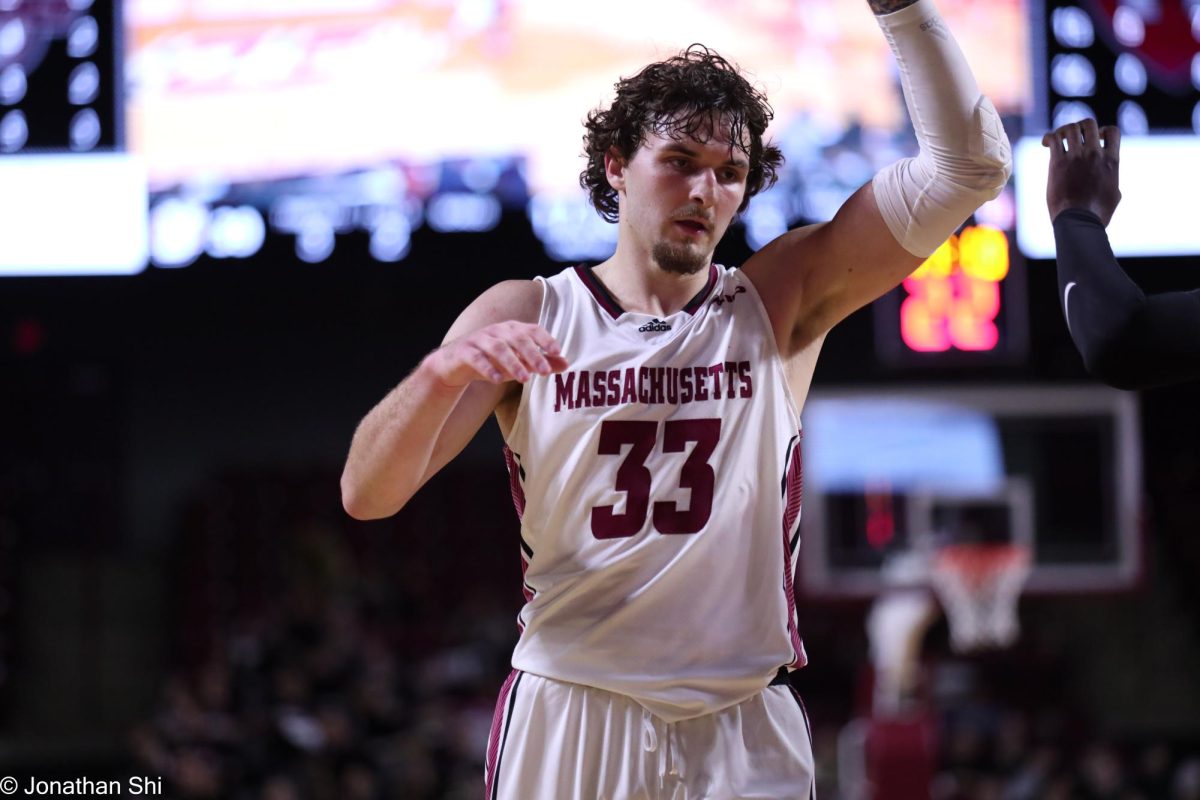
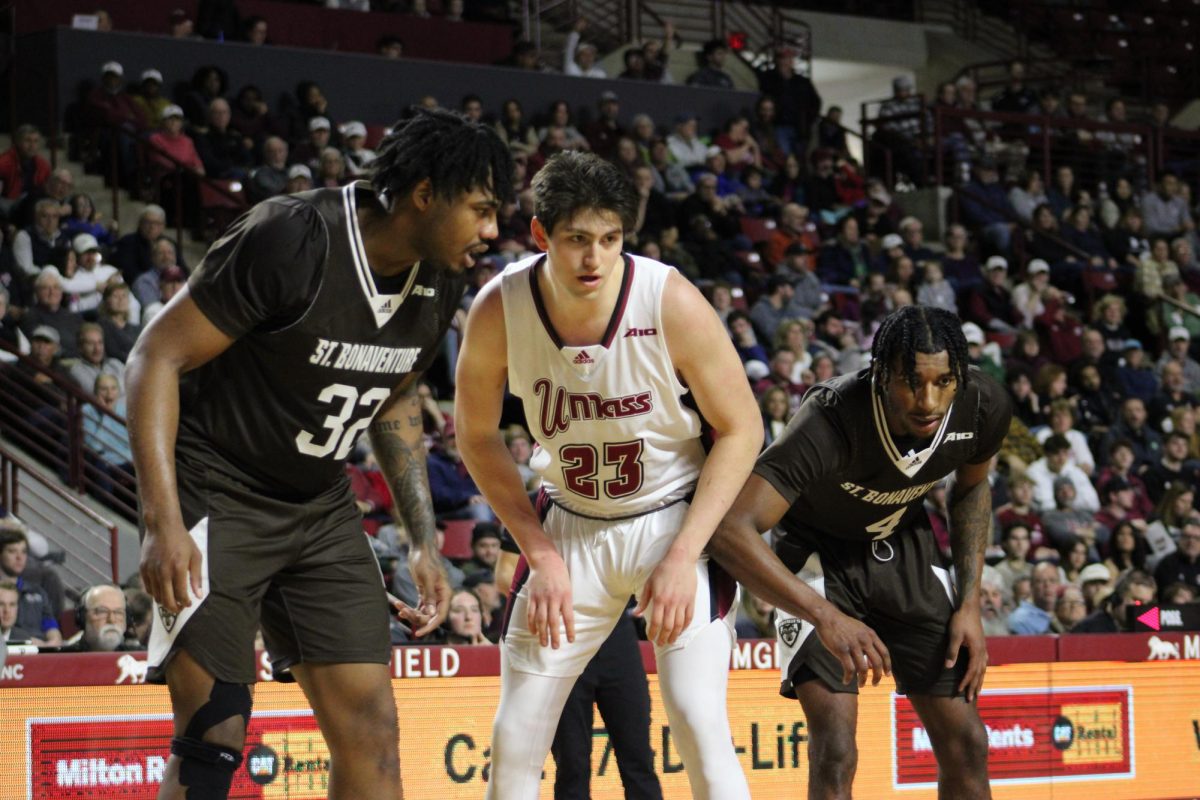
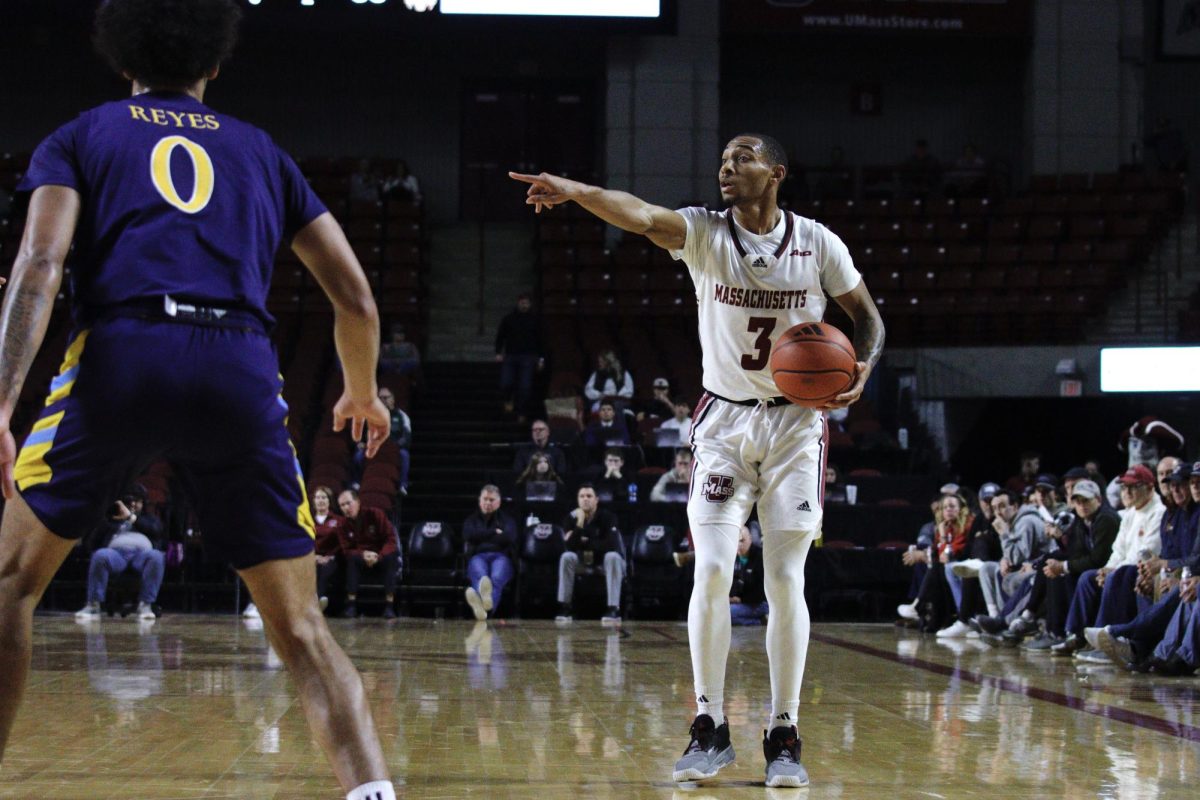
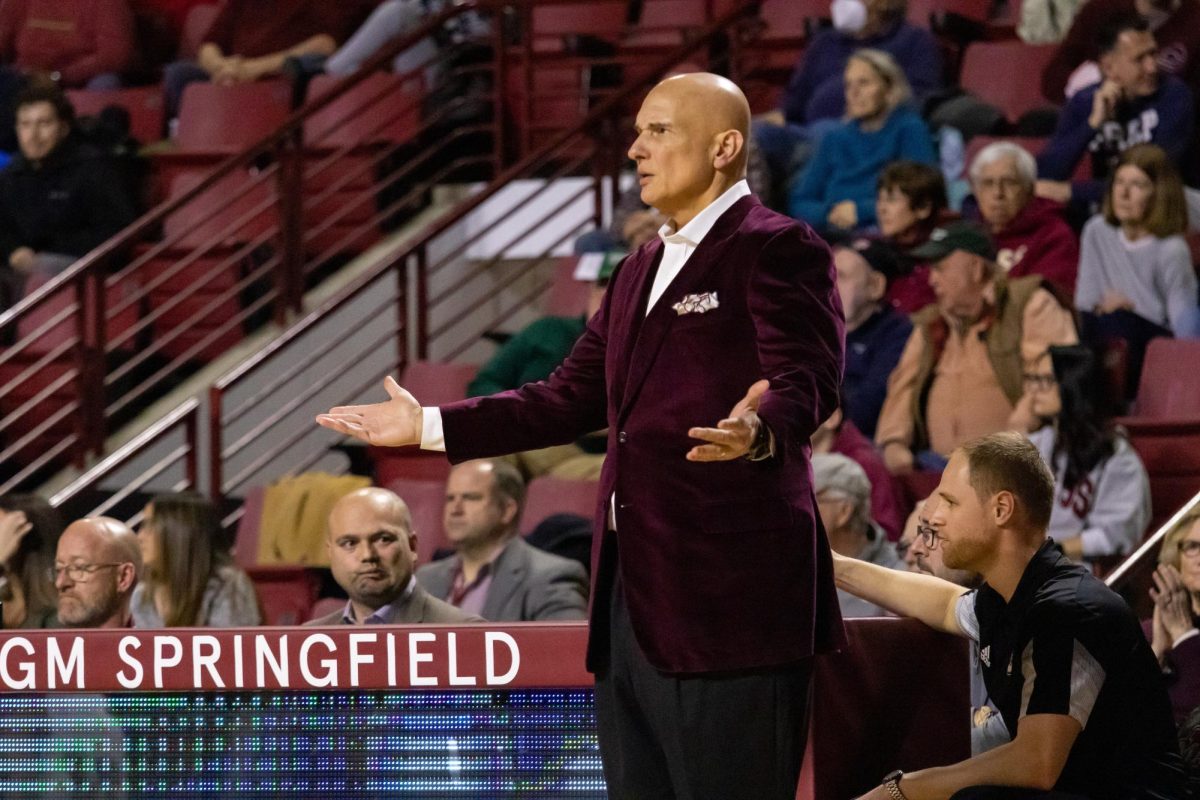

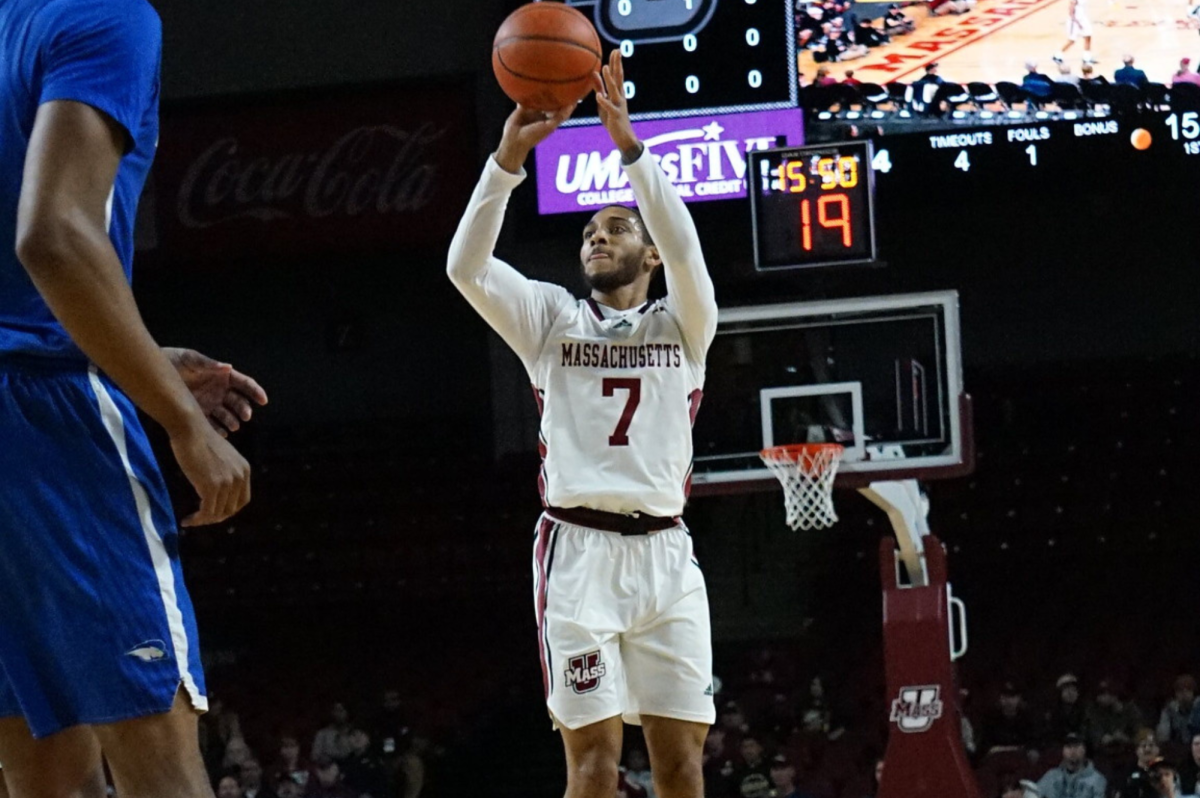
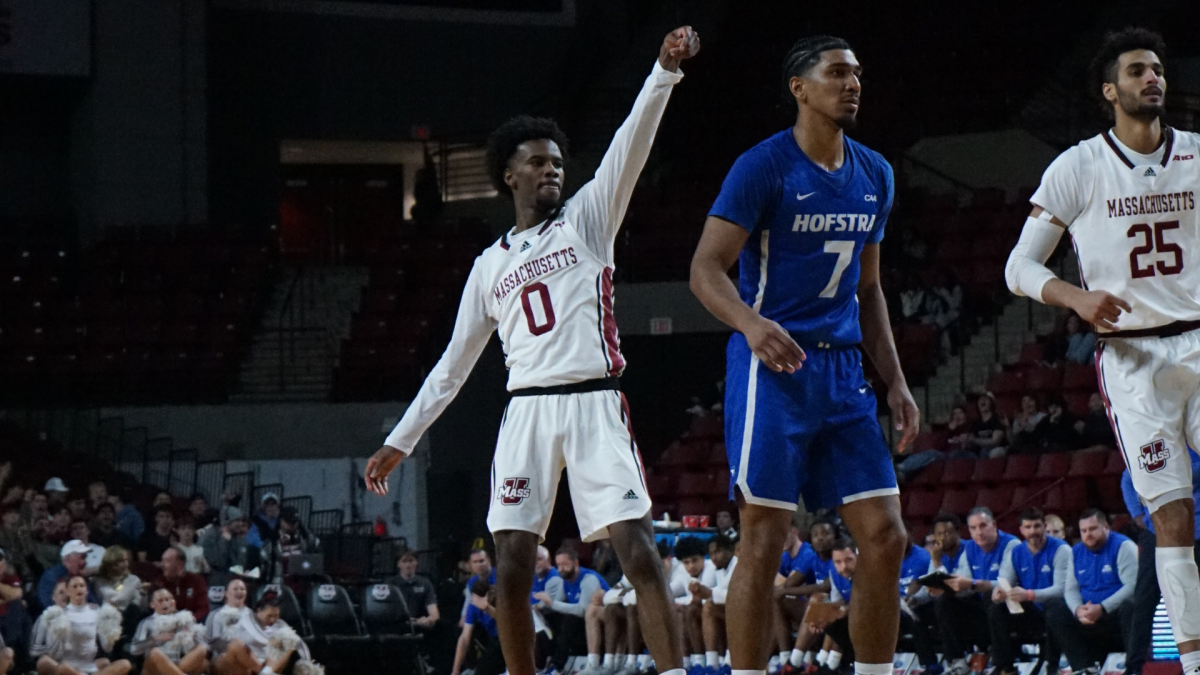
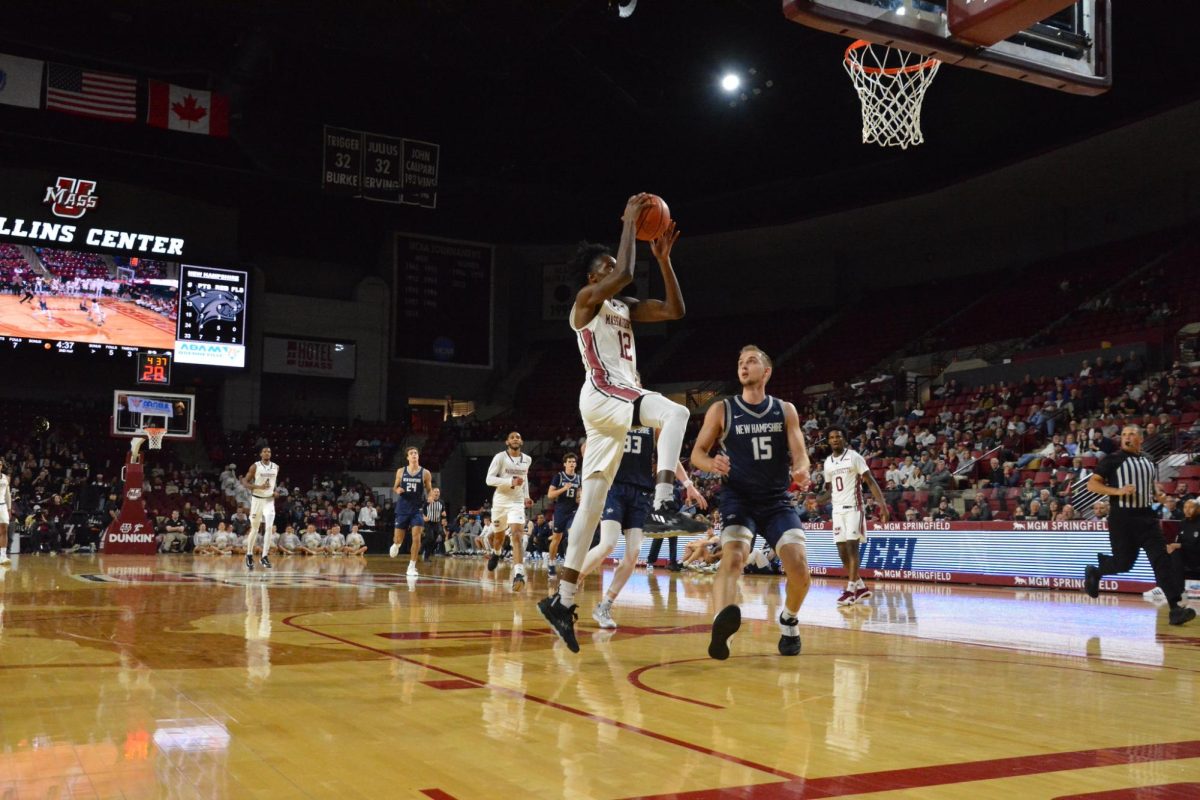
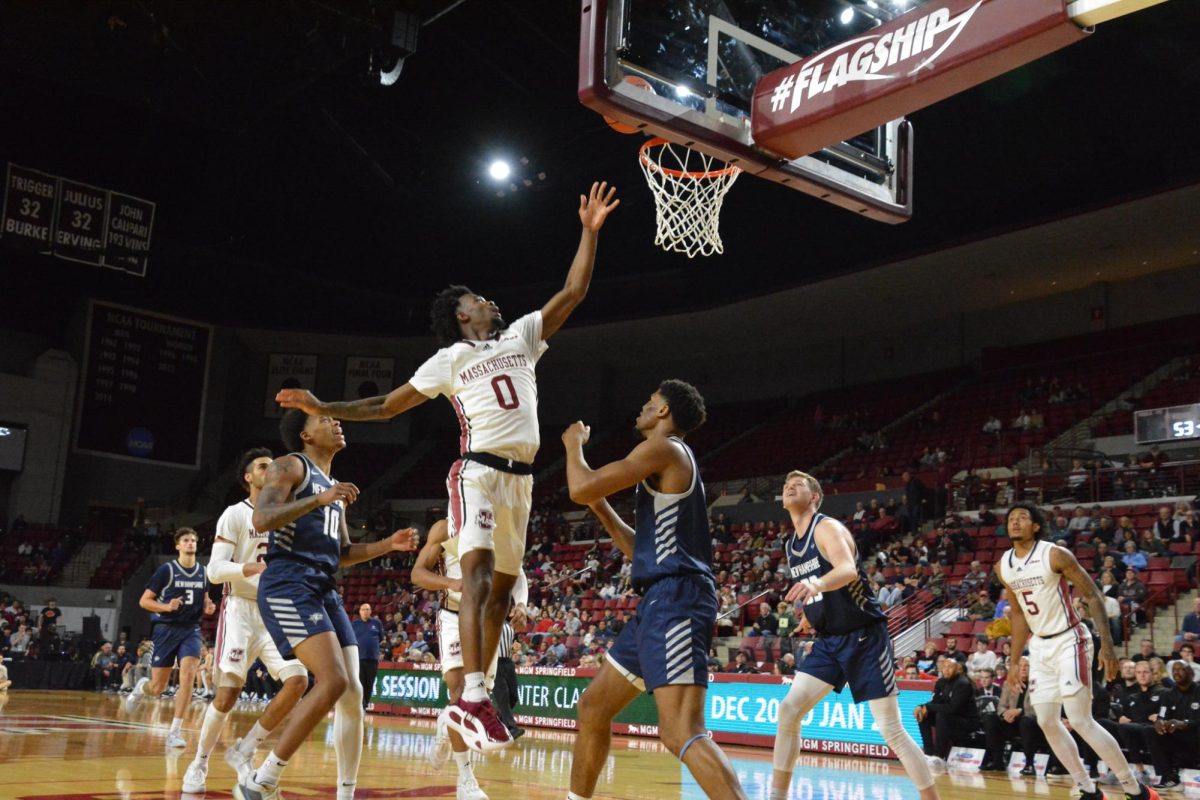
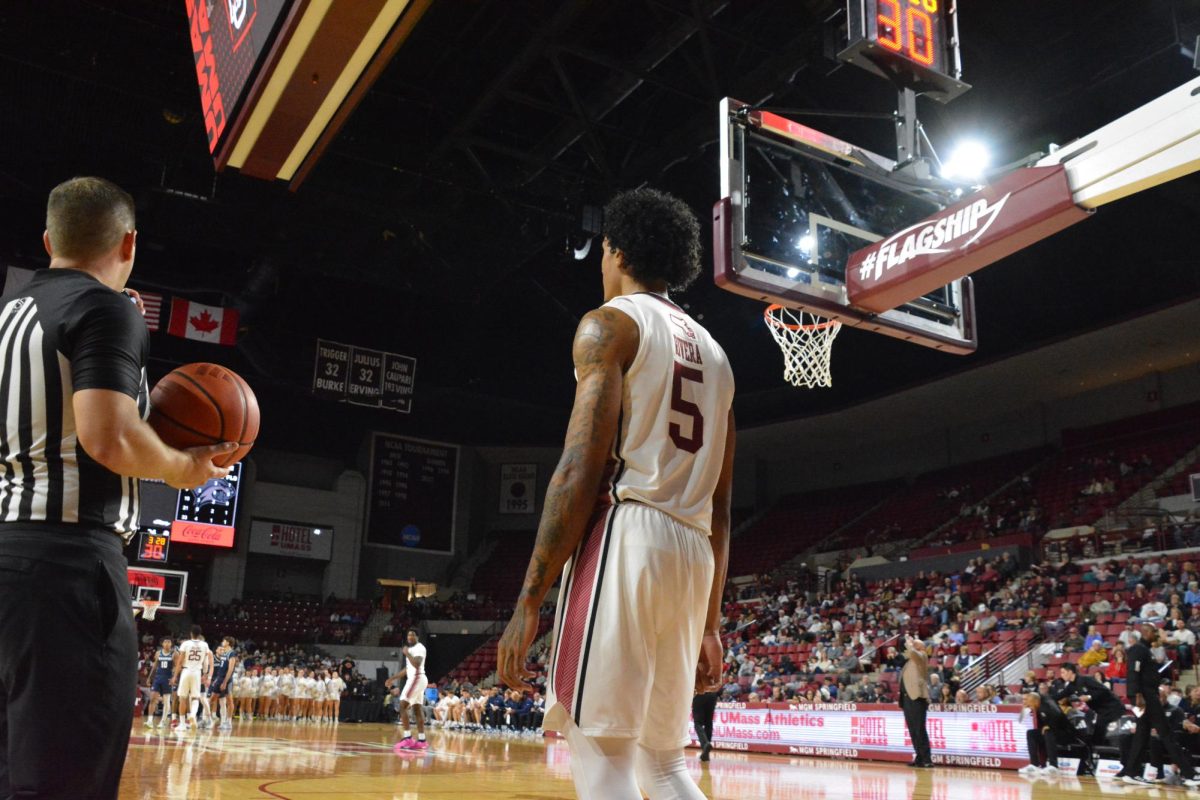






Carl • Nov 8, 2013 at 11:14 pm
Derrick Gordon cannot shoot.